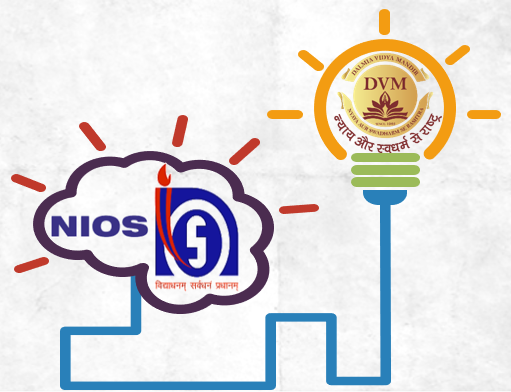
The Core Promise
of Dalmia Schools
A student who has…
Knowledge

Higher Order Thinking Skills
Higher order thinking requires students to process information and ideas in ways that transform their meaning and implications. This transformation occurs when students compare their prior knowledge/experience facts and ideas in order to synthesise, generalise, explain, hypothesise or arrive at some conclusion or interpretation. Manipulating information and ideas through these processes allowsstudents to solve problems and discover new (for them) meanings and understandings.
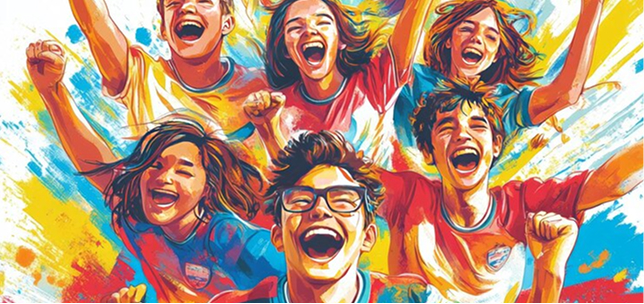
Sports
Sports are essential not only for the physical fitness and growth of a child, but also for his mental growth. The importance of sports in education can be gauged by the way it helps in inculcating values such as dedication, discipline and responsibility in children, at the same time teaching them many relevant life lessons like team spirit, mental strength, constructive use of time, health, confidence, and decision making.
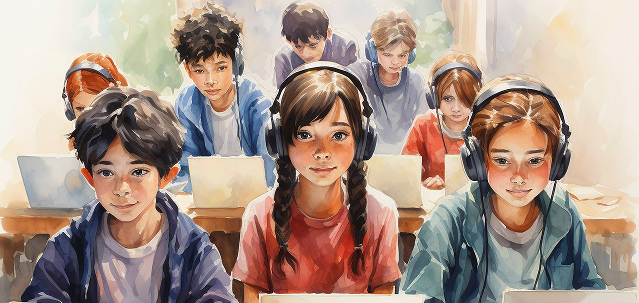
Arts
The fine arts- Visual arts, music, drama and dance are fundamental ways of knowing , thinking and expressing. They cultivate the direct experiences of the senses, their goal is to connect the child’s expression/gesture/movements directly with his/her thoughts, emotions and feelings and thus build bridges between concrete and abstract. it enables children to gain an understanding of the whole.
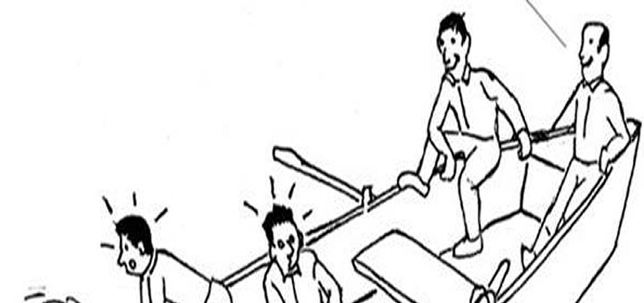
Entrepreneurial and Financial
The word “entrepreneur” is actually a verb meaning “a series of actions deliberately taken to get oneself into or out of something”. Entrepreneurship education for middle and high school children is not just about business knowledge or even great financial literacy “The real value is helping young people see the world as an owner; helping them to discover that they can, in fact, direct their lives, even at their present age,” Cozewith, President of E-Youth, said.
A student who has…
Core Values/Attitude
Integrity
Do what you say and say what you do...you are your word.
Authenticity
It is the alignment of head, mouth, heart, and feet thinking, saying, feeling, and doing the same thing consistently. This builds trust and sense of cooperation.
Open Mindedness
To have an open mind means to be willing to consider or receive new ideas and people with different outlook. It means being flexible and adaptive to new experiences, ideas and people. Being tolerant and accepting the fact that others could be right with their differences too... too...’ To seek to understand before expecting to be understood. Cultivating an open mind is another valuable outcome of critical thinking and reasoning, an open mind helps us expand our horizons and be more diverse and inclusive.
Sense of Humour
The capacity to see the flip side of life in the day to day situations and to come out of the bottlenecks of life, with a smile is indeed a great blessing, The power to see the amusing and amazing aspects of life with a perspective that can make you smile. Smile at life and smile at oneself at times. When one gets pitted against challenges and roadblocks, one tends to get frustrated and give up for the fear of failure. Looking for the lighter side of a situation gives one the courage learn from one s mistakes and to face tougher ordeals.
Growth Mindset
Students with a growth mindset believe that their intelligence can be developed over time through their own effort. They know that while not everyone has the same intelligence, everyone can learn and become smarter. The growth mindset helps children focus on their efforts. They are free to concentrate on becoming smarter rather than looking smart.
Compassion
Inculcating compassion can make our children aware of the world around them and it teaches tolerance towards different cultures and personalities. This enables children to be more sensitive and caring, that in turn leads to better relationships with others as they grow into adulthood.
A student who has…
Life Skills

Seven Habits
Our character is a composite of our habits. Changing habits is hard, but can be done by tremendous commitment. A (good) habit can be defined as the intersection of knowledge, skill and expectation / desire. Change is a cycle of being and seeing (visualization).The life skills programme is inspired by the seven Habits.
These seven habits are: Be Proactive; Begin with the End in Mind; Put First Things First; Think Win/Win; Seek First to Understand, Then to Be Understood; Synergize; Maximizing one’s potential (renewal and continual improvement or sharpening your saw).
Habits 1, 2 and 3 (Be Proactive, Begin With The End In Mind, Put First Things First) deal with self mastery. They are the "private victories" required for character growth. Private victories precede public victories.
Habits 4, 5 and 6 are the more personality-oriented "public victories" of Teamwork, Cooperation and Communication.
Habit 7 is the habit of Renewal, creating an upward spiral of growth. This process of growth will be evolutionary, but the net effect will be revolutionary

Media literacy
In the 21st Century, the century our children will live in — the century they will, in fact, shape — media literacy will not be a luxury; it will be a necessity.”
Linda Ellerbee, journalist, television producer.
Media literacy can help enhance a sense of self-development and empowerment With the ability to analyze, critique and effectively use the media to find more information, we can enhance decision making skills with more information.
The effects of media literacy have proven positive in studies across various disciplines concerning various subjects. It is incredibly important that we keep ourselves, our children, and our society media literate in order to counteract the possible negative influences media may have on us.
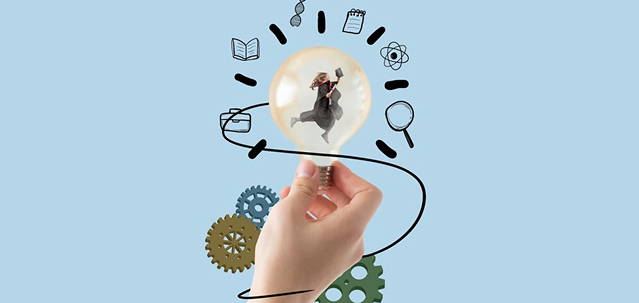
Aesthetic sense
Aesthetic sense refers to the ability to perceive, appreciate, and create beauty in various forms—art, nature, design, expression, and behavior. Integrating aesthetic education in schools nurtures creativity, emotional intelligence, and holistic development in students.
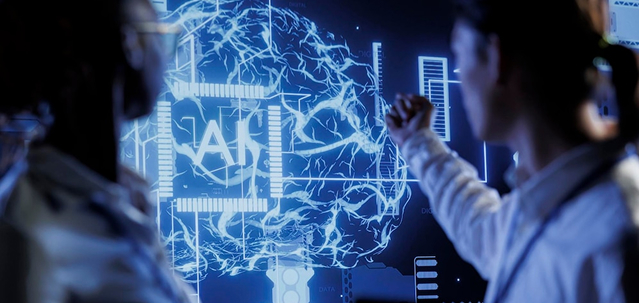
Meta - cognition
A meta was one of the conical columns set in the ground at each end of the Circus in Rome to mark the turning point in the race. Similarly the concept of meta-cognition can be seen as a turning point in our understanding of the mind.
Students learn to monitor and direct their own progress, asking questions such as 'What am doing now?', 'Is it getting me anywhere?'. 'What else could I be doing instead?'.. Four meta - cognition processes seem to be especially important in solving problems. These are: recognising the problem, identifying and defining the elements of a given situation representing the problem, making a mental map of the problem, comparing it with others.
Planning how to proceed, deciding steps, resources and setting targets , evaluating progress and solutions, knowing about what you know.
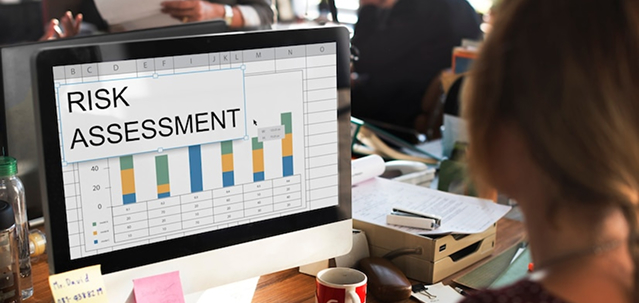
Risk taking
Why do children need to experience risk and challenge?
Everyday life always involves a degree of risk and children need to learn how to cope with this. They need to understand that the world can be a dangerous place and that care needs to be taken when negotiating their way round it.
Inevitably the most powerful learning comes from not understanding or misjudging the degree of risk. Children who learn in their early years to make their own reasoned decisions rather than simply doing what they are told to by others will be in a stronger position to resist the pressures they will inevitably face as they reach their teenage years.
In contrast, overprotected children may well make reckless decisions which put them in physical or moral danger.

Self management
(Fitness, Stress, Emotion, Reflection & Spiritual)
Self-management plans are used to teach students to independently complete tasks and take an active role in monitoring and reinforcing their own behaviour. An important goal in education is to foster self-reliance and independence.
The critical elements of self-management include setting goals, monitoring behaviour, and evaluating progress. Examples of self management include self monitoring, self evaluation, and self reinforcement.
When a student engages in self-monitoring, she observes her own behaviour, records its occurrence on a data collection form, and graphs the data to evaluate progress. Self-evaluation strategies encourage students to set their own goals and compare their current performance as they work towards those goals.

Higher order thinking skills
High Order Thinking Skills (HOTS) in Life Skills Education are essential to help students not only understand life-related concepts but also analyze situations, make responsible decisions, solve problems, and think creatively in real-life contexts.
Dalmia Octave
Product Elements
- Blended Learning Design (BLDs)
- Student learning resource for class 1-12 for each subject
- e-Content for class 1-12 for each subject
Benefits
- A unique combination of Constructivism, Multiple Intelligences and Effective Classroom Strategies which empower Dalmia Teachers to augment quality of student learning
- A combination of concept maps, synopses, worksheet, project works mapped with NCF which is a Single solution to replace text books & note books
- e-Content aligned to Student Learning Resource Teachers will be empowered to use e-content during their training programs
Product Elements
- Teacher recruitment standards
- Competency mapping framework for Dalmia teachers
- Interview evaluation form for teachers
- Teacher training modules
- Leadership training Module for Principals
Benefits
- Complete guidelines on who is a perfect Dalmia teacher and criteria to recruit them
- Identification of specific areas where a teacher is to be given training to make them ideal Dalmia teacher
- Evaluation of teachers on the basis of set guidelines and standards for ideal Dalmia teacher
- Exclusively designed and developed teacher training modules to groom a Dalmia teache
- A specially designed leadership program for Dalmia Principals to equip them with Management skills
Product Elements
- Parenting Style Inventory
- Activities and Events for Parents
- Focused Workshops according to the age and needs of their child
- Dalmia Parents’ Clubs
Benefits
- To find out exact parenting style of each parent and offer them customized parenting seminars
- To engage parents in Dalmia Octave delivery process
- Workshops will give a focused approach to the issues faced by child
- A parents’ empowered group which will help school in executing critical decisions
Product Elements
- Online Question Bank
- Manual on Continuous Comprehensive Evaluation in Dalmia Schools
- Student online grading module
- Developmental plan manual for each of the identified unique potential area
Benefits
- To generate question paper of a standard difficulty level with a mix of pre defined criteria and parameters by our expert academics team
- To execute and monitor proper rollout of CBSE norms in Dalmia Schools
- Based on marks achieved by student, online grading module will automatically convert them into grades and will give an option to print report card any time
- To explicitly tell a parent how his child is good
Product Elements
- A bouquet of innovative activities during the after school hours for children
- Life Enrichment programs like field trips, adventure campus, celebrity seminars etc.
Benefits
- These activities are designed with a focus to develop eight Multiple Intelligences in the children
- To expose Dalmia students to the different facets of life
Product Elements
- Aptitude and Interest inventory test for class 3-12 students
- Standard programs on life skills for Class 1 - 12 students
- Specific life skills modules for Class 1-12 students
Benefits
- To know how a child is good and to work on his developmental plan based on test results
- Programs aligned with parent seminar modules to enhance efficiency of parent module involving child as active partner
- To cater to specific problems of a group of student in different areas of life
Product Elements
- Dalmia Online Newsletter
- Dalmia yearly magazine
- National competition / events for all Dalmia students
Benefits
- A sharing forum for entire Dalmia Network students and teachers
- Annual capturing of all Dalmia Network activities
- An avenue to share talent for entire Dalmia Network students
Product Elements
Dalmia Class
- Portable Math Lab
- Wordsworth Language Lab
- Interactive White Board
- Portable Science Lab
e-Dalmia
- School Management System for Dalmia Network
- IT infrastructure in Dalmia Network ( Webcast, LAN, VSAT, Wi-Fi)
Benefits
- Dalmia Class is 21st century classroom exclusively envisioned for Dalmia Schools
- e-Dalmia is Single online window for all Dalmia School operations and a one point connect for all the stakeholders of Dalmia Schools. It’s a hassle free software which streamlines entire Dalmia School operation with 24*7 availability from all around the globe
(www.dalmiavidyamandir.education)
